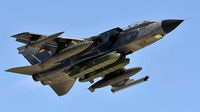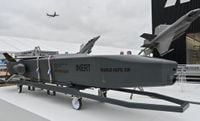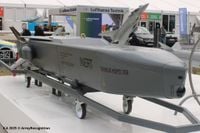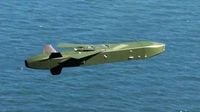On April 14, 2025, Friedrich Merz, leader of the Christian Democratic Union (CDU) and Germany’s incoming chancellor, publicly expressed his willingness to deliver Taurus cruise missiles to Ukraine, marking a significant shift from the cautious approach of outgoing Chancellor Olaf Scholz. This announcement followed a devastating Russian missile strike on the Ukrainian city of Sumy, which resulted in the deaths of at least 34 civilians and injured 117 others. Merz condemned the attack as a war crime and called for a coordinated military response to pressure Russian President Vladimir Putin.
The Taurus cruise missile, known as the Taurus KEPD 350, is designed for precision strikes against fortified targets and boasts an operational range exceeding 500 kilometers. Merz emphasized that Germany's European partners, including the United Kingdom, France, and the United States, are already supplying similar long-range weapons to Ukraine. "The British are doing it, the French are doing it, and the Americans are doing it anyway," he stated, as reported by the Financial Times.
Merz's comments indicate a willingness to break from Scholz's previous reluctance to provide such weapons, which was grounded in concerns about escalating the conflict. The incoming chancellor argued that only firm measures could influence Moscow's behavior, stating, "We must help Ukraine so that Putin understands the dead end of this war." He also highlighted the importance of not appearing weak in the face of Russian aggression.
The Taurus missile system, developed through a collaboration between Germany’s MBDA Deutschland and Sweden’s Saab Dynamics, is equipped with advanced technology, including GPS-independent navigation and a precision penetrator warhead. It is capable of destroying protected targets such as bunkers and bridges, making it a formidable asset in Ukraine's defense strategy. Merz mentioned the potential use of the missile against the Crimean Bridge, a crucial supply route for Russian forces, asserting that it could be a legitimate military target.
In October 2024, Merz had already urged the German government to issue an ultimatum to Russia, promising to deliver cruise missiles to Ukraine within 24 hours if attacks on civilian infrastructure continued. The recent strike on Sumy appears to have reinforced his position, pushing the delivery of Taurus missiles back into the political spotlight.
While Merz has signaled his intent to support Ukraine more robustly, he stressed that any missile delivery would need to be agreed upon in coordination with European partners to avoid strategic divisions. He stated, "This must be jointly agreed. And if it is agreed, then Germany should take part." This multilateral approach aims to ensure coherence in military assistance to Ukraine while bolstering the legitimacy of the responses to Russian aggression.
Merz's stance contrasts sharply with Scholz's administration, which had repeatedly rejected Ukraine’s requests for the Taurus missiles, fearing that such a move could escalate the conflict and draw Germany closer to direct involvement. Scholz maintained that providing weapons capable of striking deep inside Russia was too risky for a nation wary of repeating its historical entanglements in European wars.
As the political landscape shifts with Merz's impending leadership, the debate surrounding the Taurus missile encapsulates broader tensions between strategic caution and the imperative of military solidarity with Ukraine. The incoming chancellor's position reflects a growing consensus among Germany’s defense establishment, which has increasingly supported more robust aid to Ukraine.
However, the delivery of Taurus missiles is not without its challenges. Germany’s coalition politics could temper Merz's ambitions, as he must navigate the concerns of his future coalition partners from the Social Democratic Party (SPD), who remain cautious about escalating the conflict. Negotiations leading to the coalition agreement produced a policy document pledging strong support for Ukraine but did not commit to Taurus deliveries.
Moreover, the Bundeswehr, Germany’s armed forces, has only about 600 Taurus missiles in its inventory. Transferring even a portion of these would require careful consideration of Germany’s own defense needs. The missile's manufacturer, MBDA, could ramp up production, but this process could take months or years, given the complexity of the system.
The implications of delivering Taurus missiles extend beyond Germany’s borders, raising questions about NATO’s cohesion and Russia’s potential response. The United Kingdom and France have already supplied Ukraine with Storm Shadow and SCALP-EG missiles, enabling strikes on Russian military targets. Merz’s proposal to follow suit could align Germany more closely with its allies, but it also risks provoking Moscow, which has demonstrated a readiness to escalate in response to perceived threats.
Historically, Germany has been a significant but cautious player in arming Ukraine, providing €28 billion in aid since Russia’s 2022 invasion. However, the Taurus debate echoes earlier controversies, such as Scholz’s delay in approving Leopard tanks, which frustrated allies. Merz's willingness to break from this pattern suggests a shift toward a more proactive German foreign policy.
As the situation evolves, the potential delivery of Taurus missiles could significantly impact Ukraine's military capabilities, enabling deeper strikes against Russian logistics and infrastructure. However, the effectiveness of these strikes will depend on Ukraine's ability to gather real-time intelligence and coordinate operations, as well as Germany's willingness to relax restrictions on targeting inside Russian territory.
The debate over Taurus missiles also reflects broader questions about Europe's security architecture. Merz's coalition agreement emphasizes a stronger European defense, aligning with calls for Europe to reduce dependence on the U.S. for military support. Yet, coordinating with Washington remains critical, especially as the U.S. has provided limited ATACMS missiles to Ukraine.
In conclusion, Friedrich Merz's commitment to supplying Taurus missiles to Ukraine represents a pivotal moment in German defense policy. If he successfully navigates coalition politics and overcomes domestic challenges, Merz could redefine Germany's role in NATO and its support for Ukraine, marking a significant turning point in the ongoing conflict.









